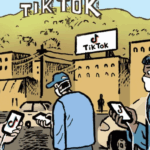NBCUniversal has joined the TV consortium OpenAP.
Launched just over a year ago, OpenAP is a joint effort by broadcast networks Fox, Turner and Viacom to create a common data standard and provide a more accurate representation of advanced TV audiences across platforms.
Through a multiyear agreement, NBCU will license its data platform Audience Studio and audience graph to the consortium’s founding members.
The data in Audience Studio isn’t just NBC’s data. Marketers can use it to match their own CRM records with NBC’s viewership data. They can also pull in third-party data.
Now, that capability will be available across Turner, Fox and Viacom.
As a result, marketers will now be able to target audiences more consistently across a larger inventory footprint – about 50% of the total TV landscape, to be exact.
“It’s a significant advancement in terms of the custom data segmentation advertisers can do,” said Krishan Bhatia, EVP of business operations and strategy for NBCUniversal.
Comcast, NBCUniversal’s parent company, will also avail non-personally identifiable set-top box data to any OpenAP member network that has an agreement in place with Comcast through a system called FreeWheel Shared Insights.
“This is a major expansion of the [OpenAP] data set,” Bhatia said. “To date, you could create audience segments in TV using Nielsen and comScore, but now you’re able to use Comcast set-top box data.”
The OpenAP networks hope to create more uniformity in advanced TV transactions.
OpenAP was designed to create a common definition of audience segments – auto intenders, for instance – across networks.
It aimed to solve a key pain point for TV buyers by creating more interoperability between TV’s many walled gardens through a single platform accessing data from many different networks.
To be clear, it’s not a data free-for-all. Buyers can leverage OpenAP to index an audience across multiple networks, but the negotiation and transaction still occurs with each individual network.
“What we agreed to with this partnership is to create a medium- to long-term road map of capabilities we believe will continue to drive television as a platform going forward,” Bhatia said.
The idea is to explore more automated self-service tools to plan and buy advanced TV media, standardized cross-platform measurement, such as NBC’s development of a unified currency called CFlight, and a common solution for TV attribution.













